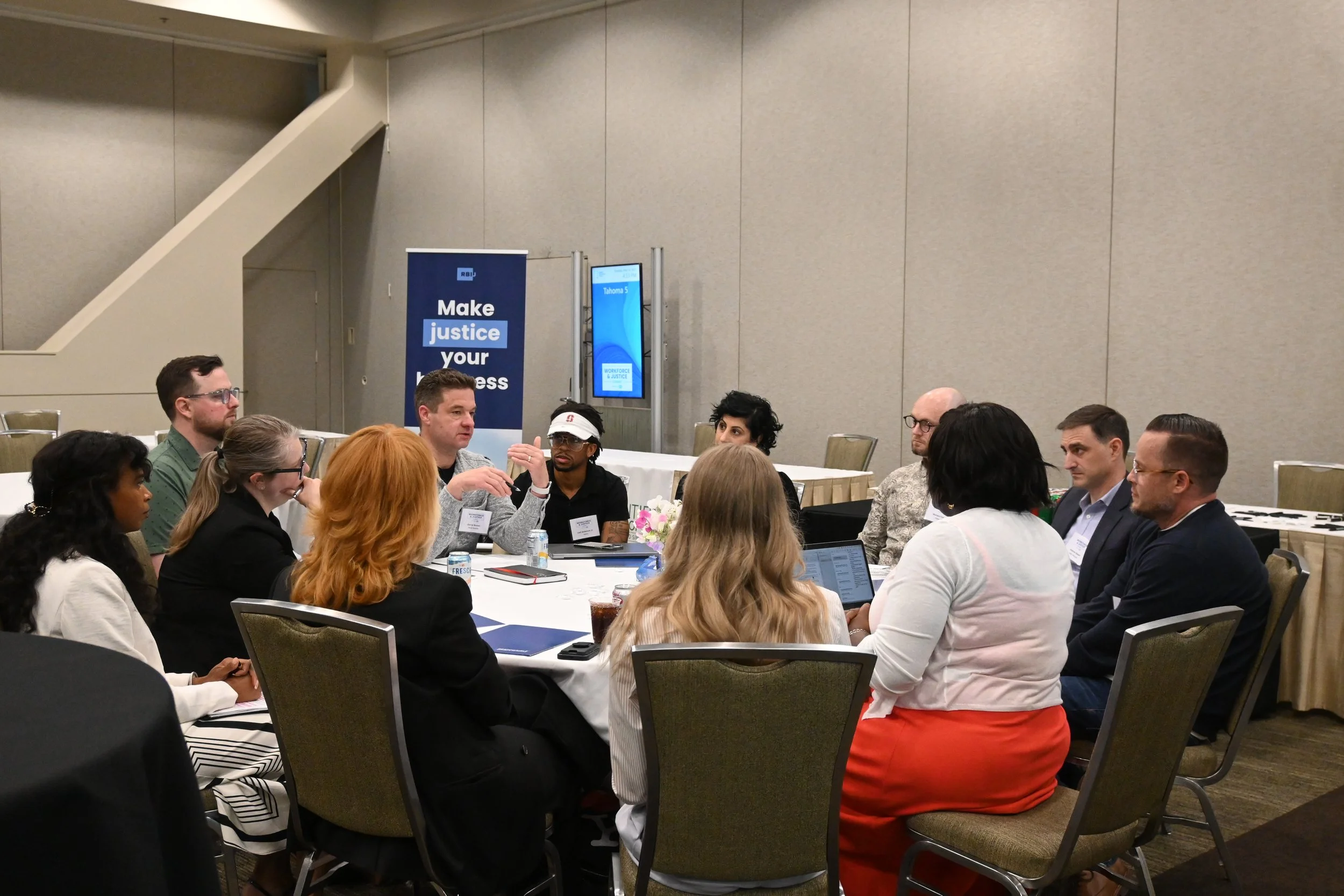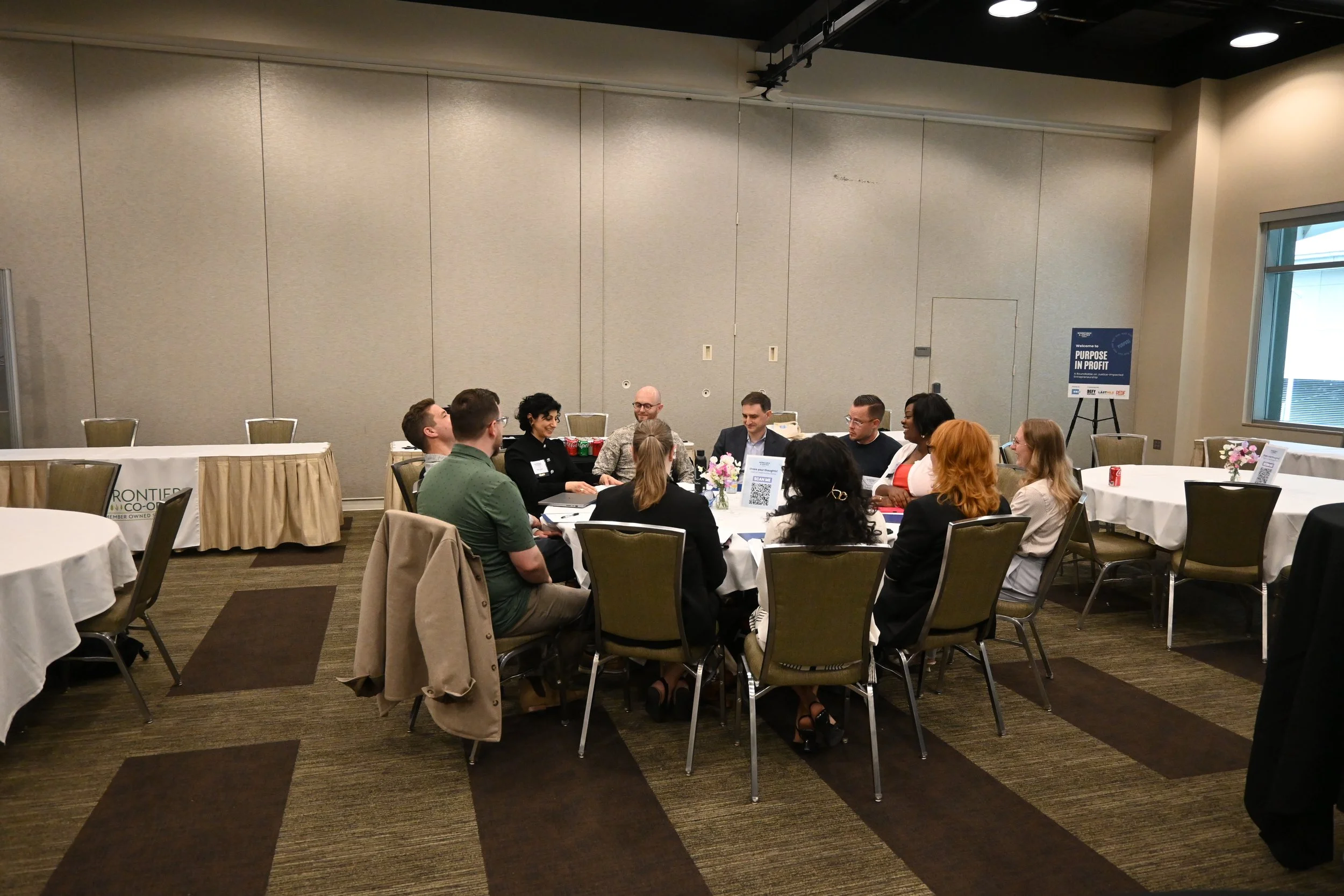Our 6 Favorite Moments from the 2025 Workforce & Justice Summit
On May 13-14, RBIJ was proud to hold our fourth annual Workforce & Justice Summit — and for the first time, we brought the event to the West Coast. Hosted by Microsoft at the Seattle Convention Center, the 2025 W&J Summit convened 150 business leaders, policy experts, and justice advocates, all united in a shared mission: creating fairer workplaces and stronger career pathways for people impacted by the criminal justice system.
Over the course of a powerful day and a half, Summit attendees heard from an inspiring lineup of speakers, including executives from major national brands, fast-growing small businesses, and mission-driven social enterprises. See our full speaker lineup here.
Here are six standout moments from the 2025 W&J Summit we won’t soon forget:
1. Our First Justice-Impacted Entrepreneurs Roundtable
For the first time at the W&J Summit, RBIJ brought together a group of justice-impacted entrepreneurs and business leaders for a powerful roundtable discussion to identify more ways for RBIJ to support this community.
In partnership with The Last Mile, Defy Ventures, and REDF, the roundtable participants discussed ways RBIJ can work with justice-impacted business leaders to drive workforce-boosting criminal justice reform and amplify best practices in Second Chance Hiring.
2. Learning About Microsoft's Innovative Pro Bono Model
The Summit opened with a keynote from Beth Henderson, Assistant General Counsel and Pro Bono Director at Microsoft — and a valued member of RBIJ’s advisory council.
Beth shared how Microsoft’s Pro Bono Program empowers employees to contribute their time and legal expertise to help individuals with justice needs. Through partnerships with organizations like the Seattle Clemency Project, which advocates for people with lifelong or long prison sentences, Microsoft employees have logged over 7,000 pro bono hours, supported 16 successful releases, and helped saved the state of Washington at least $12 million.
Over time, this particular pro bono engagement at Microsoft has evolved. Today it also encourages employees to mentor returning citizens, working with them on interviewing skills, resume building, and more.
“Now it's more important than ever, in a tech-centered world, to give returning individuals the support they need to have a successful reentry,” Henderson said.
3. Watching a Special Message from Sir Richard Branson to Summit Attendees
Sir Richard Branson, Founder of Virgin Group
In a surprise video message, Sir Richard Branson, Founder of Virgin Group, applauded Summit attendees for their commitment to tackling injustice in the workforce and addressing failed criminal justice policies.
“Events like this Summit remind us that real progress happens when people from across sectors come together, bringing ideas, action and urgency to the table,” he said. “Business must be a force for good.”
A long-standing advocate for corporate social justice advocacy and inclusive recruitment practices like Second Chance Hiring, Branson reminded leaders of their power — and responsibility — to eliminate barriers for people with records and help shape a fairer economy.
“When we remove barriers to employment for those with criminal records, and when we give those who have struggled a second chance, we don't just turn individual lives around. We strengthen our workforce, we reinvigorate the labor market, and we build safer, more resilient communities.”
“Virgin's partnership with RBIJ is an expression of this commitment as we work together to champion criminal justice reform and ensure everyone is given a second chance.”
4. Launching RBIJ's New “Rewriting Justice” Series with Libro.fm
New York Times bestselling author Lara Love Hardin joined Michelle Cirocco, Chief Executive Officer of Televerde Foundation and Chief Impact Officer of Televerde, for a moving discussion about their lived experiences with the justice system and the power of storytelling for advancing systemic and cultural change.
Hardin, whose memoir “The Many Lives of Mama Love” tells the story of her incarceration and reentry, spoke about the challenges of leaving prison and the role narrative plays in shifting public perception.
“Policy and protests are great... but stories transform,” she said.
Lara and Michelle’s dialogue marked the debut of RBIJ’s new series, “Rewriting Justice: Authors and Executives in Conversation for Reform,” produced in partnership with Libro.fm. The series features candid conversations between business leaders and justice-impacted writers, giving the business community firsthand insights into real-life impacts of incarceration and reentry.
Stay tuned for more Rewriting Justice dialogues to come.
5. Learning How Businesses Are Navigating Inclusion and Belonging in 2025
This year’s Summit came at a pivotal moment. Businesses across the U.S. are grappling with shifting hiring norms and corporate values of inclusion and belonging are under scrutiny. Meanwhile, longstanding workforce issues like labor shortages continue to loom large.
On our last panel of the day, "Adapting Without Compromise: Upholding Core Values in a Changing Business Landscape," business leaders addressed tackled these questions head-on, and a powerful throughline emerged: hiring inclusively and advocating for workforce-boosting criminal justice reforms aren’t just moral imperatives — they’re smart business strategies.
“We know that businesses that are inclusive are more profitable. We know that there's more innovation,” said panelist Rick C. Wade, Senior Vice President of Strategic Alliance and Outreach for the U.S. Chamber of Commerce. “That's why we published that report called the Business Case for Second Chance Hiring and Reforming Criminal Justice, to take that out to the policymakers, to state and local chambers, to companies. And I think that is foundational to continue to work around inclusion and belonging despite the political volatility, the shifts in what's happening in our society.”
“We have to say steadfast to our mission, but also be rooted in the real facts and the data. And I think that's what will sustain us beyond this real uncertain time.”
6. Hearing Chief Royal Ramey’s Journey from Incarcerated Firefighter to Industry Reformer
We closed the Summit with a powerful fireside chat between Chief Royal Ramey, Co-Founder and CEO of The Forestry and Fire Recruitment Program (FFRP), and RBIJ CEO Maha Jweied.
After fighting wildfires while incarcerated, Chief Ramey returned home to find career barriers at every turn. In response, he co-founded FFRP to ensure others wouldn't face the same roadblocks. Today, the social enterprise has helped place 275 formerly incarcerated individuals into fire service careers.
“I’d rather take a shot to make things happen — and change people’s lives — than regret not trying,” said Chief Ramey.
At the Summit, Chief Ramey highlighted how occupational licensing restrictions often prevent formerly incarcerated firefighters from pursuing careers in the field after their release. Many municipal fire departments require EMT certification — yet individuals with felony convictions are frequently barred from even beginning that process. Chief Ramey urged businesses to advocate for updated licensing laws that remove such barriers and help place qualified firefighters in community-protecting roles, regardless of their record.
Chief Ramey’s story was a fitting finale to our 2025 Summit, and a reminder of what’s possible when second chances meet opportunity.

















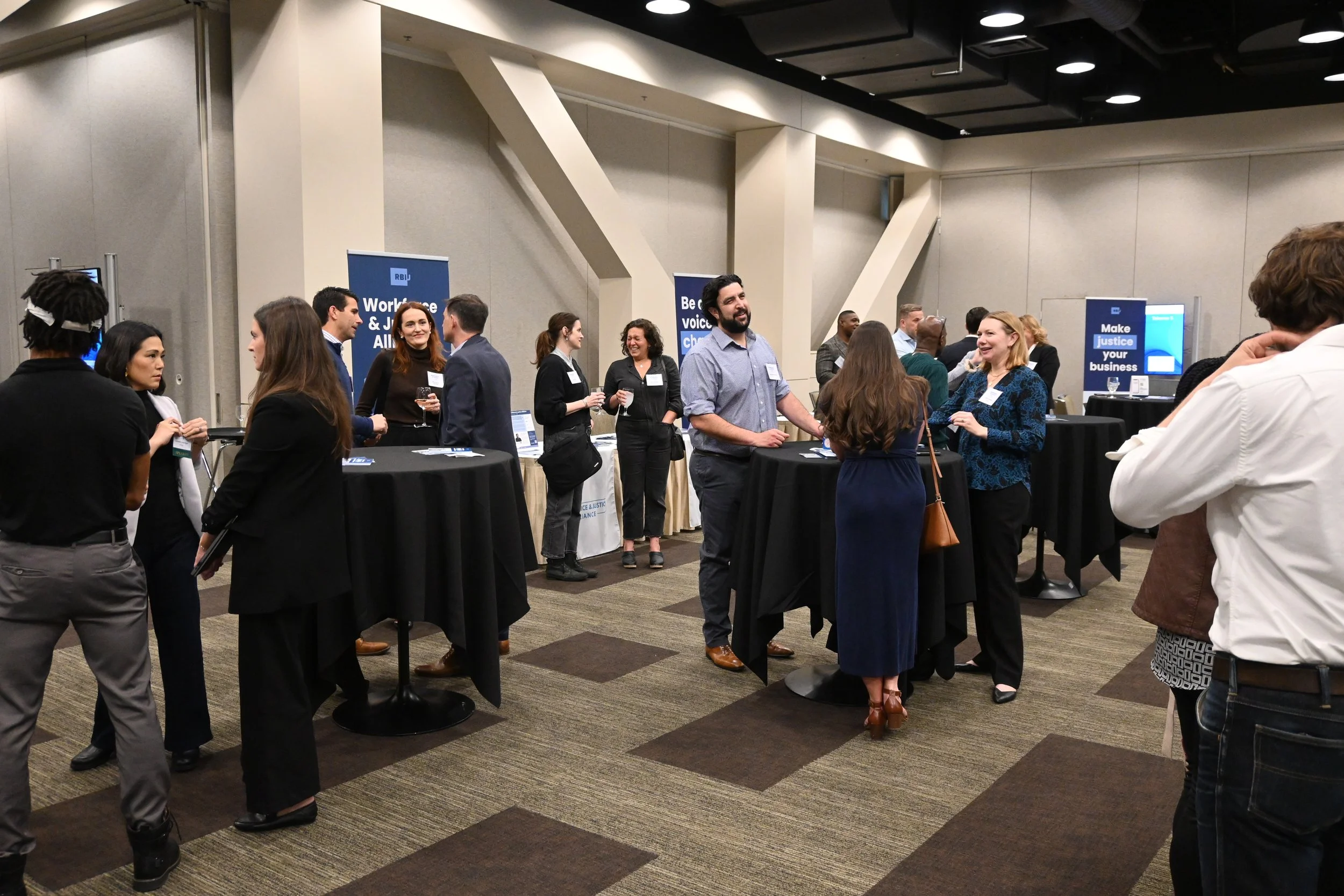
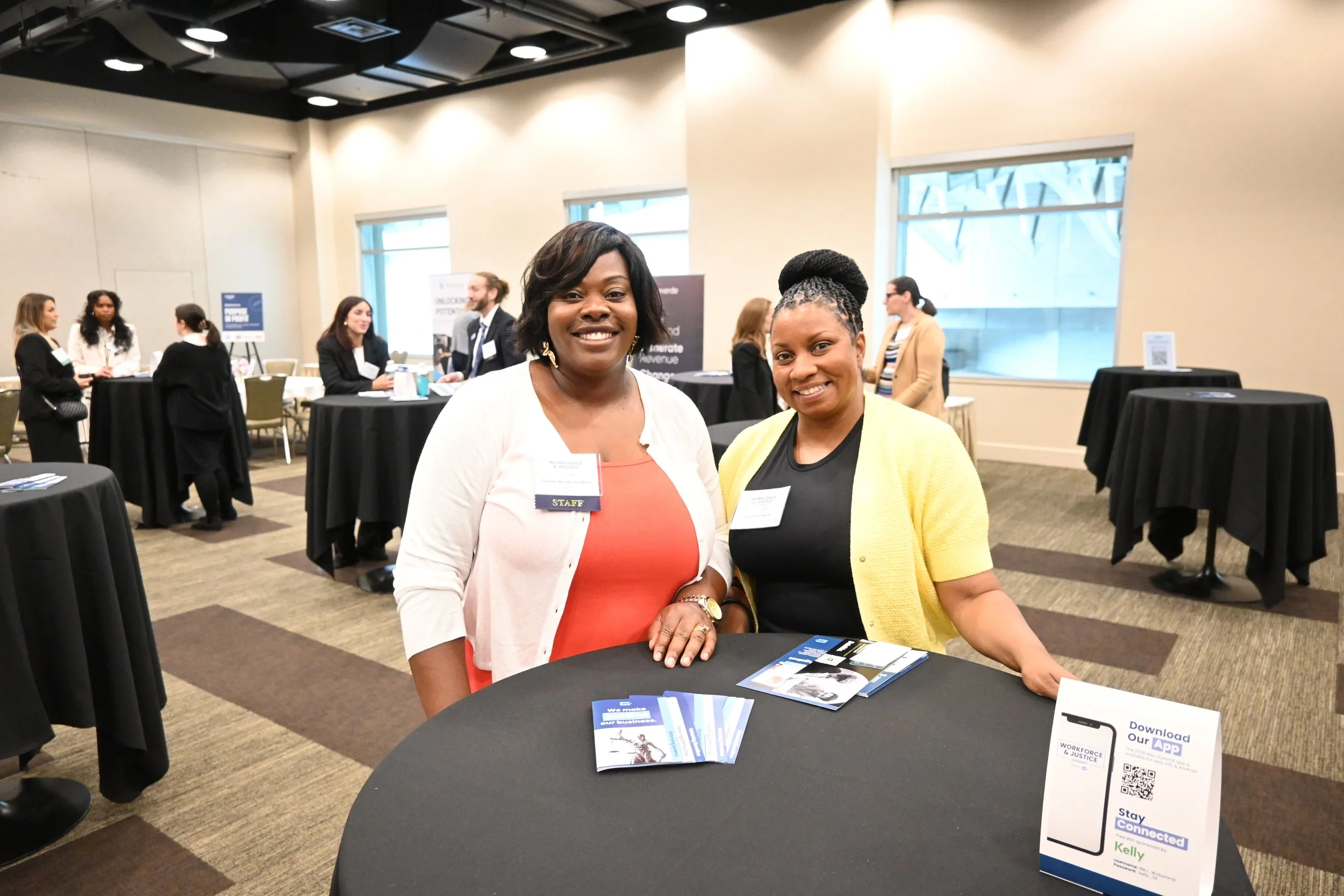











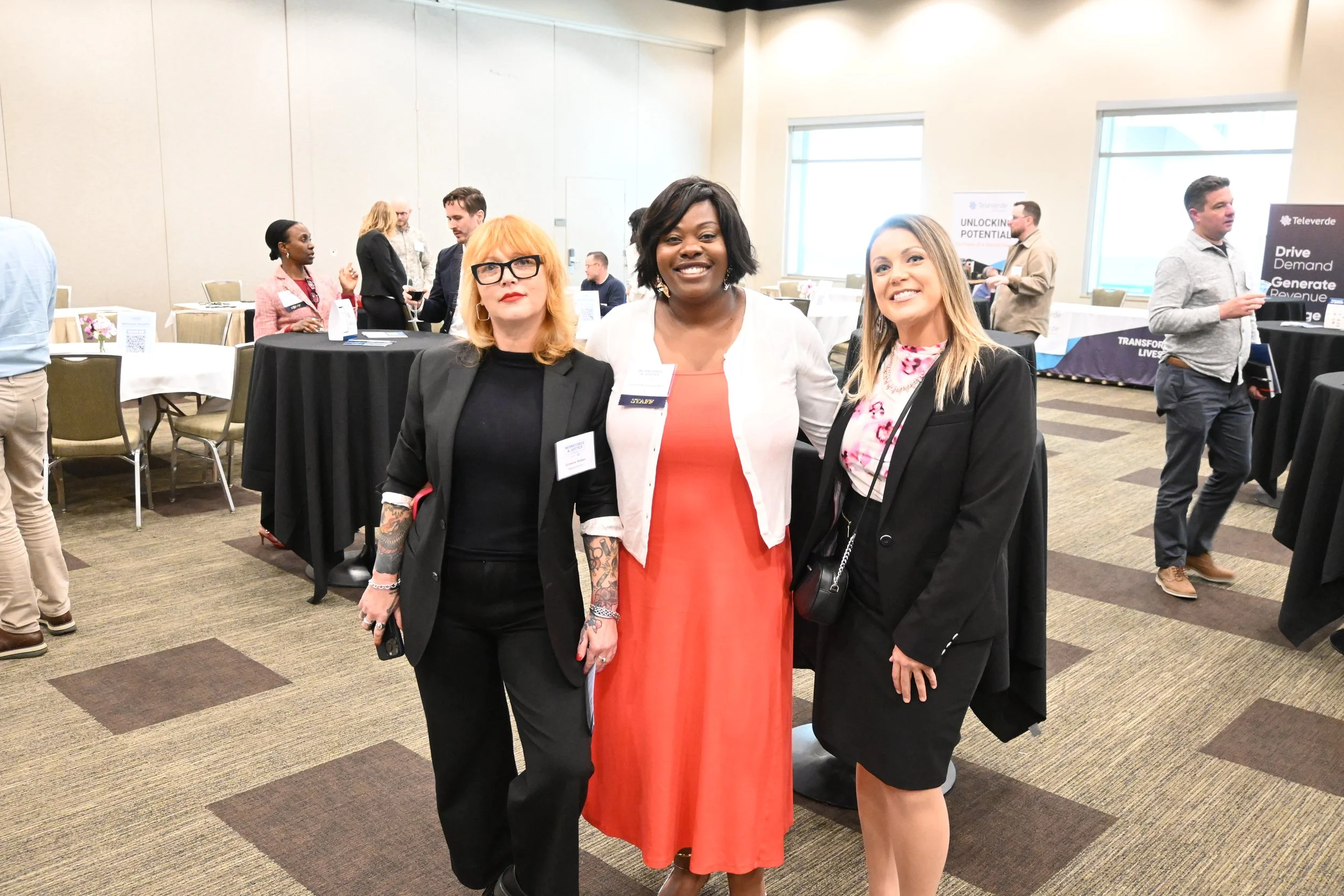






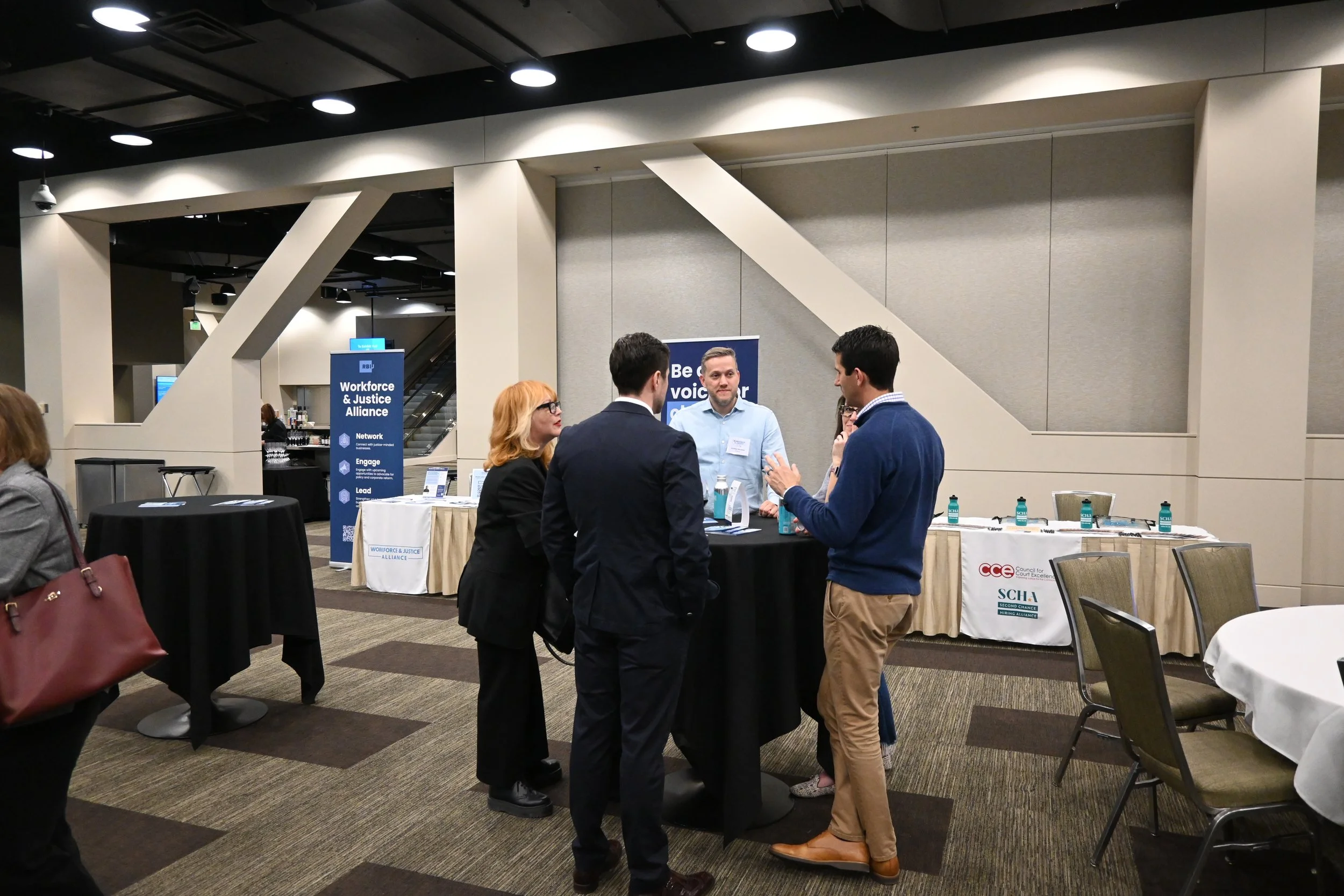









Photos: Zachary C. Person
How You Can Get Involved
Attendees left the 2025 W&J Summit inspired and equipped to take action in their own organizations. If you're a business leader looking to get started, we’d love to connect.
Visit our Inclusive Hiring and Policy & Advocacy pages to learn more.
Sign up for updates about our 2026 Summit in London, UK or our 2027 Summit in Washington, DC.
